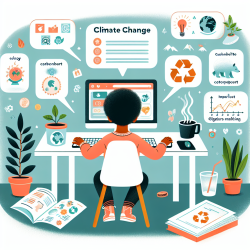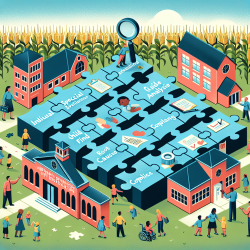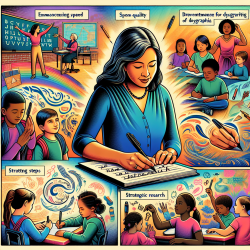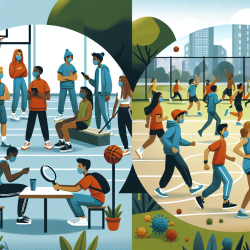Helping Kids Understand Climate Change: Insights from Research
As practitioners working with children, it is essential to understand their concerns about climate change and how we can support them. A recent study titled Understanding youths’ concerns about climate change: a binational qualitative study of ecological burden and resilience offers valuable insights into how children and adolescents perceive climate change and what we can do to help them cope.
Key Findings from the Study
The study involved focus groups with children and adolescents from the United States and France. Participants expressed a range of emotions, including anger, hopelessness, guilt, and sadness. They also reported significant anxiety symptoms, particularly those who viewed themselves as activists. The study identified three main domains of concern:
- Concerns about Climate Change: Participants described feeling frustrated with the inaction of previous generations and a sense of responsibility to fix these mistakes.
- Barriers to Climate Action: Participants faced challenges in engaging in climate action due to lack of agency over personal choices and structural barriers.
- Support for Climate Action: Support from family, friends, and peers was crucial for participants to feel empowered and hopeful.
Implications for Practitioners
Based on these findings, practitioners can take several steps to support children and adolescents in coping with their concerns about climate change:
1. Open Conversations
Encourage open conversations about climate change. Children and adolescents need a safe space to express their emotions and concerns. Use age-appropriate language and provide clear explanations about what adults are doing to mitigate climate change.
2. Model Prosocial Behaviors
Model eco-conscious behaviors and involve children in these activities. Whether it's recycling, conserving water, or participating in community clean-ups, children learn by observing and participating in these actions.
3. Support Collective Action
Encourage collective action and community involvement. Participating in group activities related to climate action can provide a sense of empowerment and reduce feelings of helplessness.
4. Address Anxiety
Be mindful of the anxiety that discussions about climate change can provoke. Provide reassurance and focus on actionable steps that children can take to make a difference.
5. Foster Resilience
Help children build resilience by focusing on positive outcomes and the potential for change. Highlight stories of successful climate action and the power of collective efforts.
Encouraging Further Research
The study highlights the need for more research on how children and adolescents experience and respond to climate change. Practitioners can contribute to this field by conducting their own studies or collaborating with researchers. Understanding the unique perspectives of young people can inform better practices and policies to support their mental health and well-being.
To read the original research paper, please follow this link: Understanding youths’ concerns about climate change: a binational qualitative study of ecological burden and resilience.










